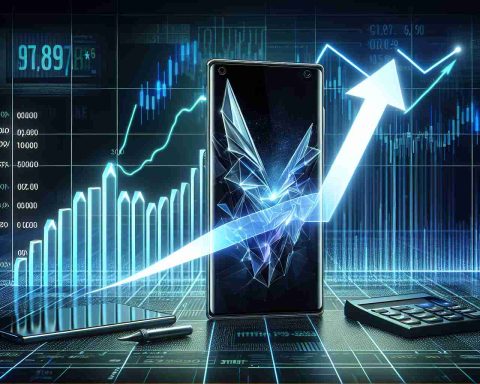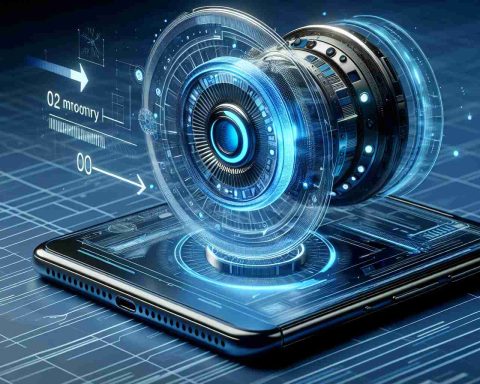In a dramatic move to bolster shareholder confidence, Samsung Electronics Co. has announced an ambitious plan to repurchase a significant portion of its own stock, totaling about 10 trillion won, or $7.2 billion. This substantial buyback initiative, set to unfold over the next 12 months, marks one of Samsung’s most extensive shareholder return programs to date.
Initially, Samsung has committed to repurchasing approximately 3 trillion won of stock starting Monday, with the process extending till February 2025. The acquisition strategy for the remaining 7 trillion won will be carefully evaluated by the board. This financial maneuver coincides with mounting concerns over Samsung’s standing in the memory chip sector, particularly as SK Hynix Inc. continues to dominate the advanced chip marketplace with Nvidia Corp.
The announcement has sparked discussions among investors worried about Samsung potentially lagging in the booming artificial intelligence industry. Compounding these concerns is Samsung’s vulnerable position due to international trade policies, especially with significant exposure in China.
Despite the stock’s recent rally, jumping 8.6% before the buyback announcement, it has still seen a sharp decline, shedding 32% this year. The company faces further headwinds from a global consumer electronics downturn.
Looking ahead, Samsung’s advancements in AI memory chip technology show promise, but skepticism remains. Experts suggest the company’s current valuation reflects ongoing trade risks and the challenging memory market dynamics. Some investors, meanwhile, are casting their nets wider, looking to other tech stocks, particularly in Taiwan, for more attractive opportunities.
How Samsung’s Stock Buyback Strategy Could Reshape the Tech Industry
In a bold shift to rejuvenate investor faith, Samsung Electronics Co. unveiled a strategic share buyback plan totaling approximately $7.2 billion. This unprecedented decision is not without its own set of implications and potential ripple effects extending far beyond merely stabilizing stock prices.
Unexpected Benefits of Samsung’s Buyback Strategy
While the buyback primarily aims to prop up Samsung’s stock value, this move could also serve as a catalyst for wider changes in the technology landscape. Buybacks often signal that a company believes its shares are undervalued, which might intrigue other investors to explore opportunities there. Moreover, it suggests that Samsung holds excess cash reserves, possibly indicating financial stability and readiness to weather economic uncertainties.
This strategic buyback could potentially lead to fresh investments in Samsung’s infrastructure and future technological advancements, notably in the AI and memory chip sectors. As such, this might spur innovation in these fields, potentially offering new tools and solutions across various industries relying on AI and memory technology.
Challenges and Controversies Surrounding the Buyback
Despite the apparent advantages, the timing and scale of this buyback have fueled debates. Critics argue that the funds earmarked could alternatively be channeled into research and development initiatives or acquisitions that might present longer-term growth benefits. Furthermore, the plan arrives amidst a backdrop of fluctuating global trade dynamics that pose continuous risks to Samsung’s international business operations, especially with significant reliance on the Chinese market.
There’s also an underlying concern that focusing excessively on share value might detract from addressing core operational challenges, such as competing effectively against giants like SK Hynix in the burgeoning AI memory market.
What Does This Mean for Global Markets?
On a broader scale, Samsung’s strategy may influence other tech behemoths to reassess their shareholder return models. Companies might increasingly view share buybacks as a remedial measure to contend with volatile market conditions and investor sentiments.
This could ignite a trend across major tech firms to prioritize short-term investor satisfaction, potentially at the expense of long-term strategic investments. Therefore, stakeholders need to weigh this tactic against long-term corporate sustainability.
Questions and Answers
– How will Samsung’s buyback affect the technology industry?
By potentially setting a precedent, Samsung’s move may encourage other tech companies to prioritize shareholder value, impacting investment strategies industry-wide.
– Why haven’t they invested the funds into new technologies directly?
Although direct investment carries potential for growth, a buyback might seem like a safer bet to maintain shareholder confidence amidst uncertain market conditions.
– What are the risk factors involved?
Risks include possible neglect of R&D, dependence on a volatile market like China, and the inherent challenges of the AI memory chip sector.
For more insights into the technology and investment realm, consider visiting Bloomberg or Financial Times.




























